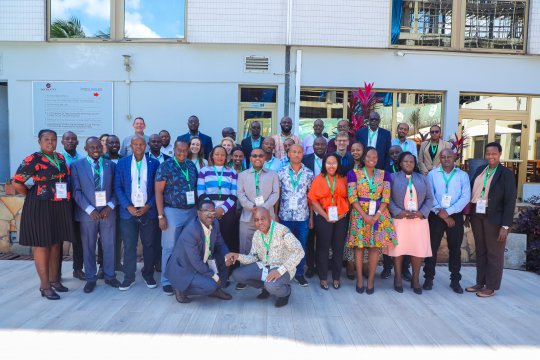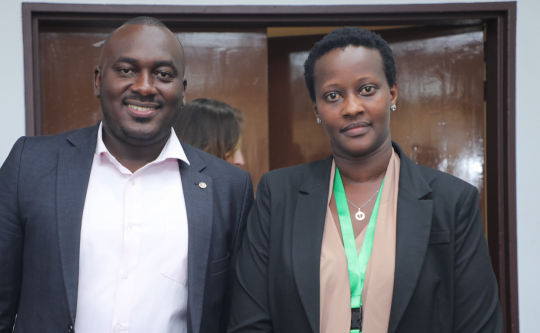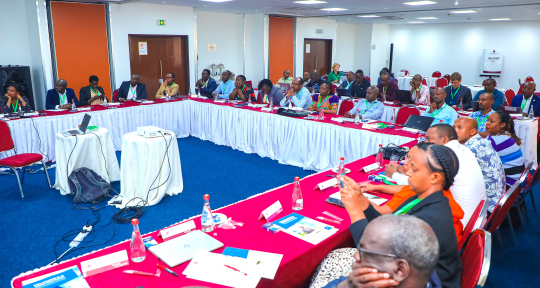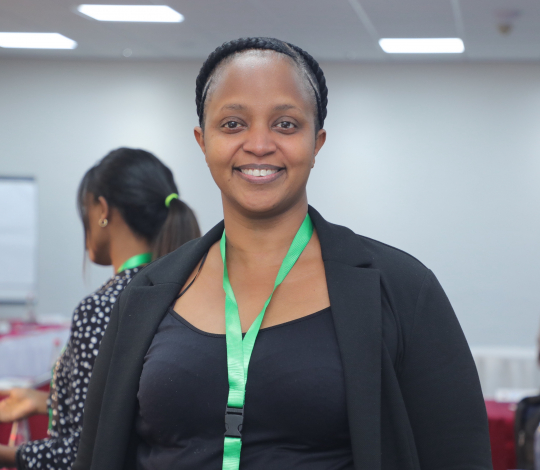Hundreds of thousands of people die prematurely in East Africa because of air pollution in their homes, which in turn is a result of the use of biomass. The use of firewood and charcoal contributes also to climate change and forest loss. Those are issues that were in focus when 25 civil servants and 20 EfD researchers engaged in vivid discussions in Ghana.
EfD’s Annual Meeting in Ghana was preceded by, among others, a three-day workshop within the Inclusive Green Economy (IGE) program. Civil servants from five East African countries participate in this EfD program aimed at building capacity for reforms to achieve an inclusive green economy. This year's focus is on reducing the dependence on biomass for heating and cooking.
Sees Ghana as benchmark
After having met online on several occasions, it was finally time to meet in person. The aim of the workshop was to learn about research findings in this field and to network and share experiences from relevant policy instruments.
The session was kicked off by presentations by two researchers from EfD Ghana: Amin Karimu and Philip Adom.
“It’s interesting to hear from researchers from Ghana. Many of us use Ghana as a benchmark when it comes to a transition to clean cooking since a lot of progress has been made here,” commented Diana Mbabazi, from the Ministry of Finance and Economic Planning in Rwanda.
Valuable to learn from peers
Benchmark or not, the progress toward clean cooking is slow and the dependency on biomass is still great. However, different countries in Africa have made progress in different areas so it is indeed valuable to learn from experiences from other countries.
After some more presentations by researchers from Sweden and Tanzania, a large proportion of the workshop was spent working in smaller groups and mapping stakeholders and how they may be affected by different policies.
“I find it really valuable to not only listen to lectures but also learn from my colleagues in other countries: How far have they come? What policies have they put in place? Could we implement those too?” remarks Diana Mbabazi.
Shares similar problems
“The Rwandan National Strategy for Transformation 1 focuses specifically on the reduction of biomass so what we talk about here today is totally relevant to us.”
Tony Joshua Mwesigwa from the Ministry of Energy and Mineral Development Uganda noted that as an economist you get to address local as well as global issues.
“It’s important to share insights with colleagues from elsewhere. Rwanda, Sweden, and other countries have many similar problems to solve,” he said.
“Researchers need to get practical”
The discussions during the workshop were very lively, and productive. This in-person meeting was also an opportunity for the researchers to get honest feedback from the civil servants.
Peace Kaliisa from the Ministry of Infrastructure, Rwanda, urged the researchers to be more down-to-earth and practical:
“The challenge is that we can often not relate to the research,” she said.
“The researchers are up in the blue and propose solutions that don’t work for the common man. They must look at solutions that are easy to implement, and relate with ordinary people. And communicate it in a way that is understandable.”
By: Petra Hansson
Facts about the Inclusive Green Economy in Practice program
Inclusive Green Economy in Practice is a capacity development program for civil servants in East Africa on economic policy instruments for achieving a just green transition. It bridges gaps between research and policy to get evidence-based policies and practices.
The IGE program is led by the EfD Global Hub, in close collaboration with the EfD Centers in Ethiopia, Kenya, Tanzania, and Uganda. The team in Rwanda is based at the Ministry of Economic Planning and Finance with support from the EfD center located in South Africa.
Read more!



